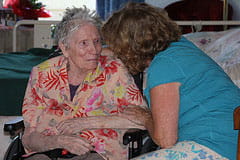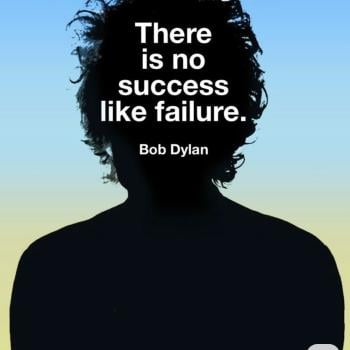By Elizabeth Scalia
 A too-long-undiagnosed bout with Lyme Disease has left me challenged with arthritis and some neurological damage. The arthritis, though annoying, has its uses: I can generally predict rain well before the Doppler Radars, and the pain gives me something to offer as prayer for the sake of others, or penance for myself. Taken this way, the arthritis has become something of a spiritual gift to me, what my Irish Aunties might have called "a little kiss from the cross."
A too-long-undiagnosed bout with Lyme Disease has left me challenged with arthritis and some neurological damage. The arthritis, though annoying, has its uses: I can generally predict rain well before the Doppler Radars, and the pain gives me something to offer as prayer for the sake of others, or penance for myself. Taken this way, the arthritis has become something of a spiritual gift to me, what my Irish Aunties might have called "a little kiss from the cross."
Not so the neurological issues. At the peak of my illness I was unable to figure out how to do the dishes, and my organizational skills have never fully recovered. Especially when I am tired, my short-term memory -- although much improved -- can sometimes seem shaky, and aphasia occasionally has its way with me. When the synapses are misfiring I will call a hat a "helmet" and refer to the act of sweeping the floor as "brooming." A more typical mix-up goes something like this:
At market recently, I purchased a box of organic toasted oats; they look like Cheerios, but they're supposed to be better. One bowl convinced me otherwise, and when my son came in to breakfast, I mentioned it, saying (I thought) "I don't much like those organic fake-Cheerios. They're too salty."
He looked into the cabinet and asked, "Where are they?"
I said, "Right there, that box."
My son, a patient sort, moved some boxes, took the cereal out and kept looking.
"I think you're hallucinating," he said.
"No, I'm not, they're right in your hand, the Cheerios."
"Oh," he said. "You said Oreos."
It was one of those times when I could not respond, accusingly (as I too often do), "Well, you knew what I meant..."
When I realized I had screwed it up, I asked my son, "Are you going to get rid of me, when my mind is gone?"
"I'm going to be confused a lot of the time," he admitted.
"Well," I shrugged, feeling comforted, "as long as you still love me."
Until very recently, I could find no "gift" in what we have taken to calling my "baby-Alzheimer's moments." I was resigned to what I had lost -- if I could no longer plan parties, well, we had entertained too much, anyway -- but discovering any usefulness to my sporadic incoherence seemed beyond my ken. Slowly, however, I am becoming aware of what I have been given: a chance to learn humility and patience. I can no longer always assume that I am right and those around me are mistaken, and therefore I cannot indulge either my pride or my temper when my family turns to me wearing puzzled expressions. I have had to hone my sense of humor a little, even managing to chuckle at friends who tease that I still owe them $50 from some long-ago bet I must have forgotten. Realizing that these little incidents seem to increase when I have been less disciplined in prayer, the call to same is now answered with some alacrity.
I have been given the gift of understanding my weaknesses, so that I may work on trusting God (and everyone else) just a little bit more; ego decreases as trust increases, and as the lessons of that trust have been life-changing and spirit-enlarging. I would never want to go back to my pre-Lyme condition. I would not now change a thing. Whether my family would say the same is debatable, and I certainly understand why that is.
CBS News correspondent Barry Petersen recently filed a report on the early-onset Alzheimer's that began affecting his wife, Jan Chorlton, at the age of 40. It is an undeniably moving story. After introducing the viewer to images of the beautiful, lively and engaged Chorlton, who also worked for CBS, the report shows us Petersen's 60-year old, still beautiful wife, now living in what appears to be a top-notch assisted-living facility. She is unable to sustain simple conversation or to recognize her husband. Chorlton talks to Petersen of the man whom she will always love, who will always love her, while Petersen openly weeps. When Petersen asks his wife if she can name that man, she seems a little embarrassed and giggles, "Mr. Happy."
"That's his name?" Petersen gently asks.
"Yes, you with coffee."
One's heart cannot help but break.
The story shifts. Medical experts are introduced and they declare that there is no treatment for Alzheimer's Disease, and no way to prevent it; research is underfunded and Alzheimer's-related deaths are dramatically increasing. In the near-future, we are told, as the mid-twentieth century baby boomers reach their culminations, 16 Million Americans will be diagnosed with Alzheimer's Disease.




